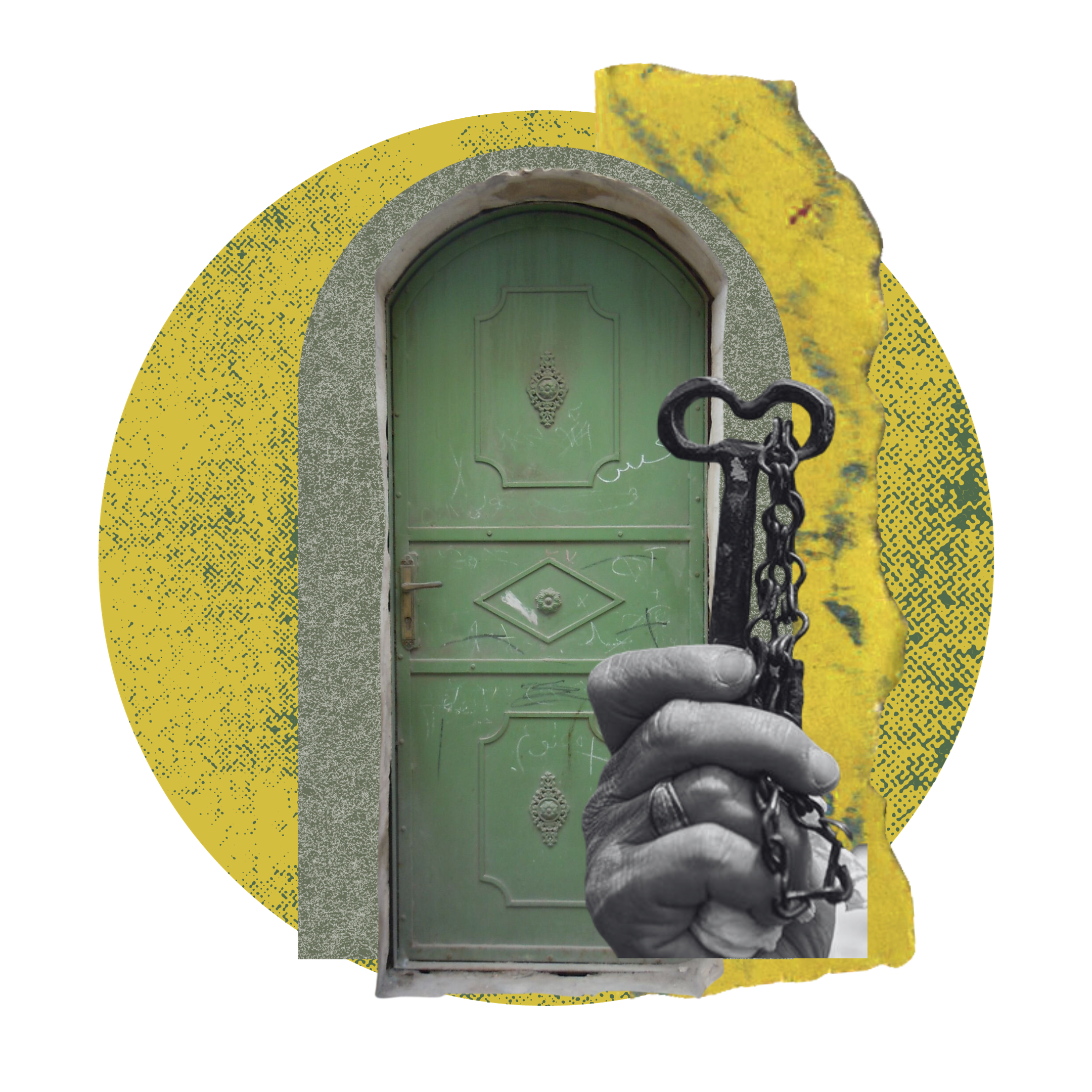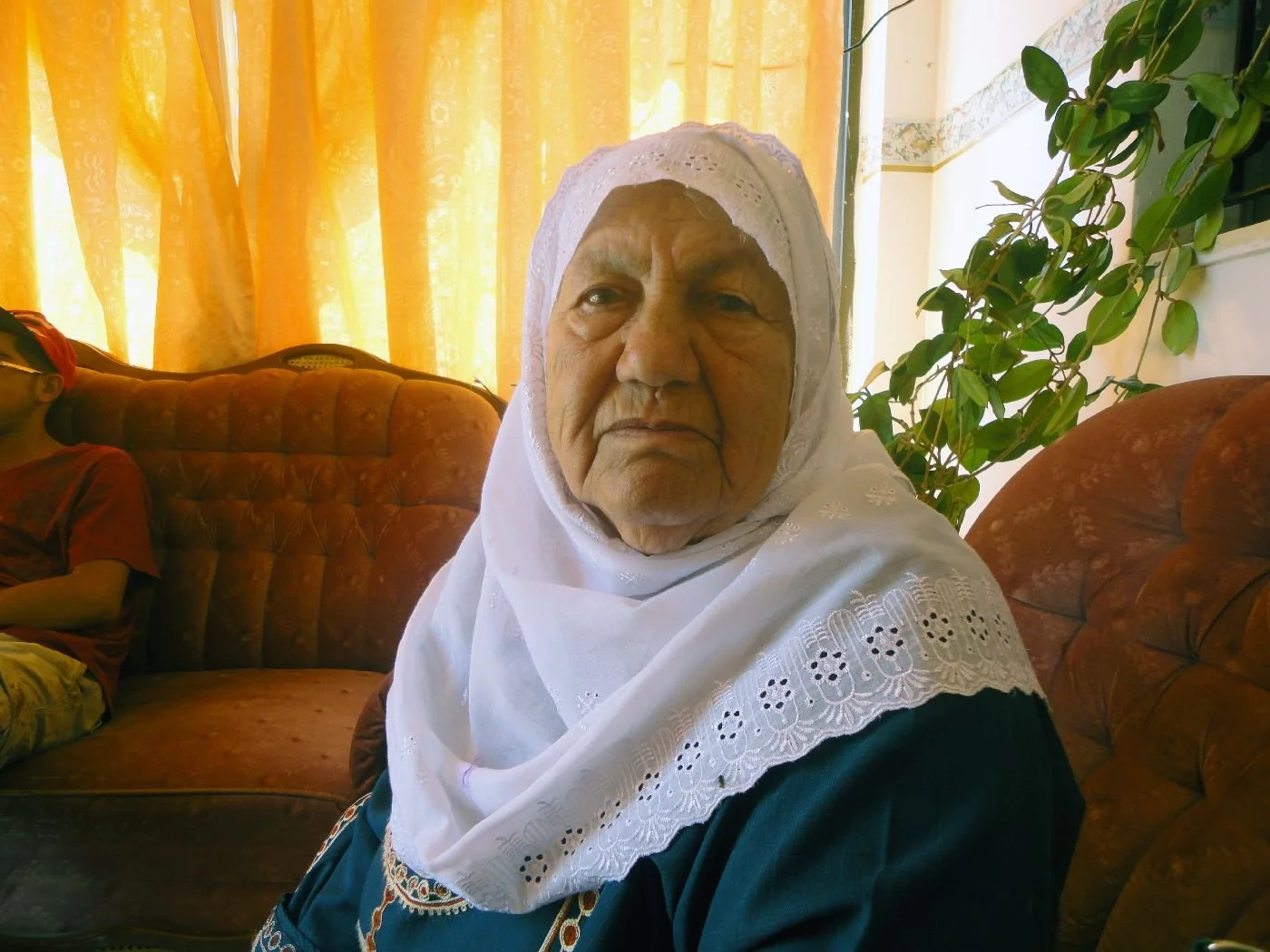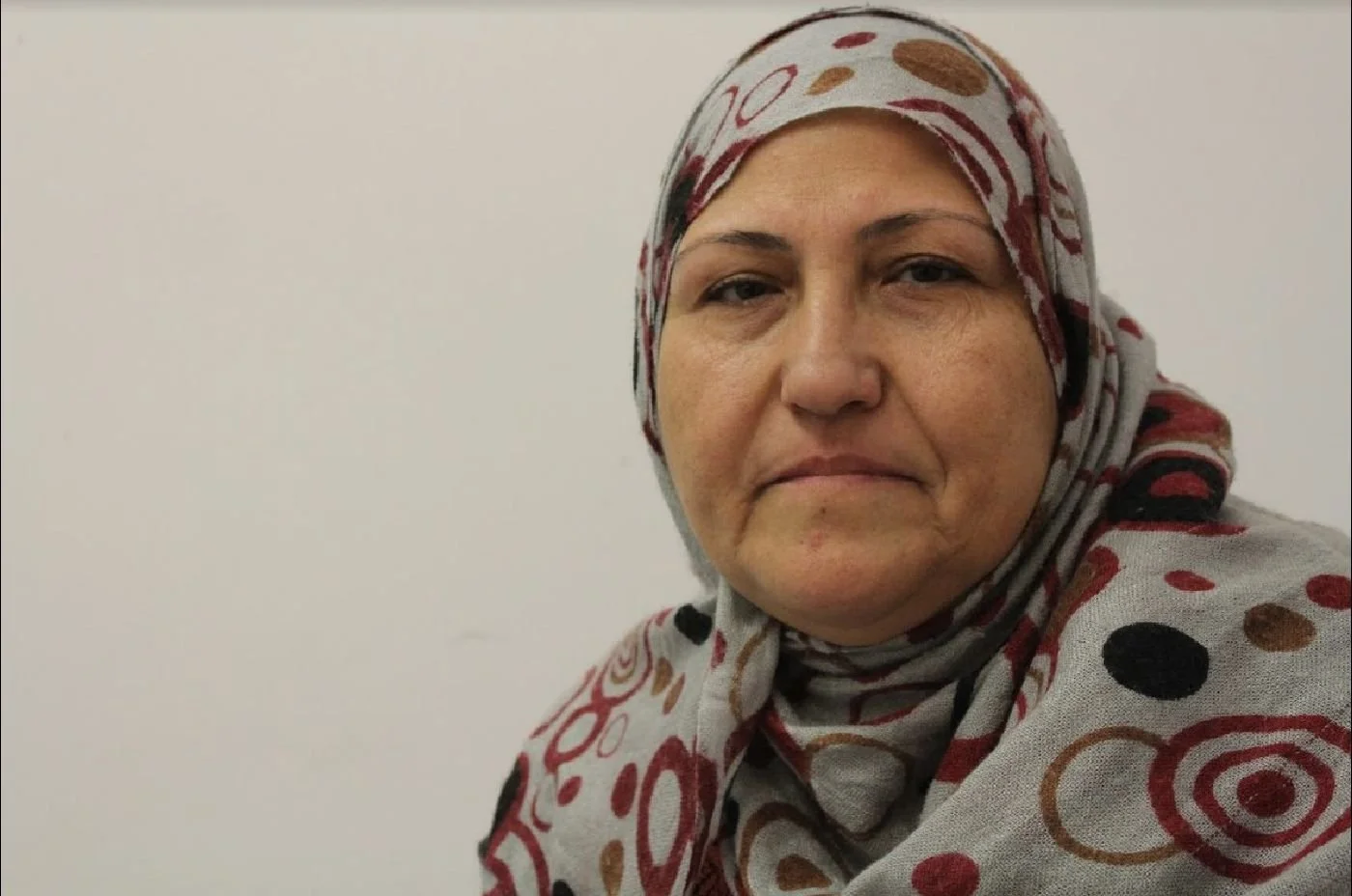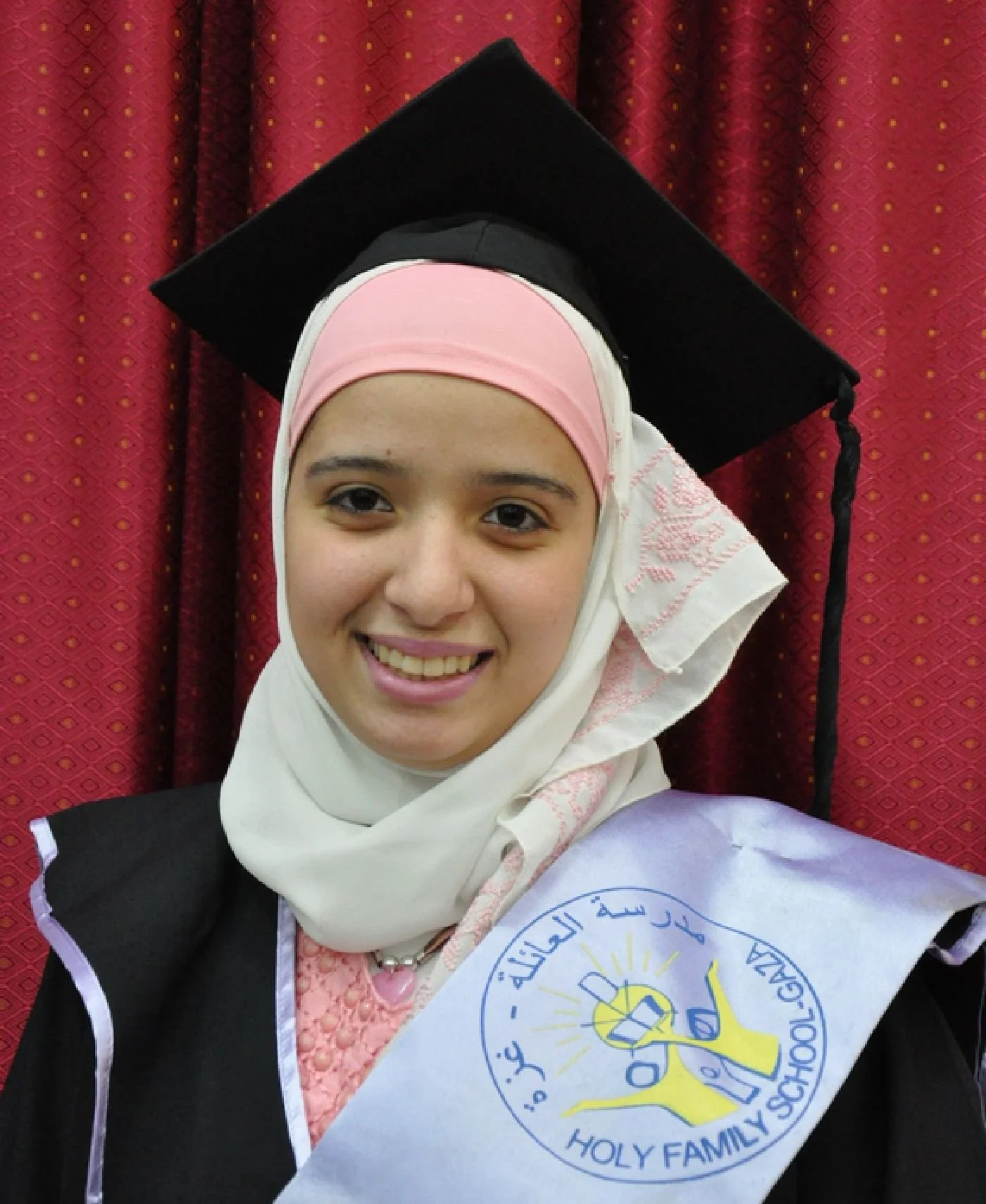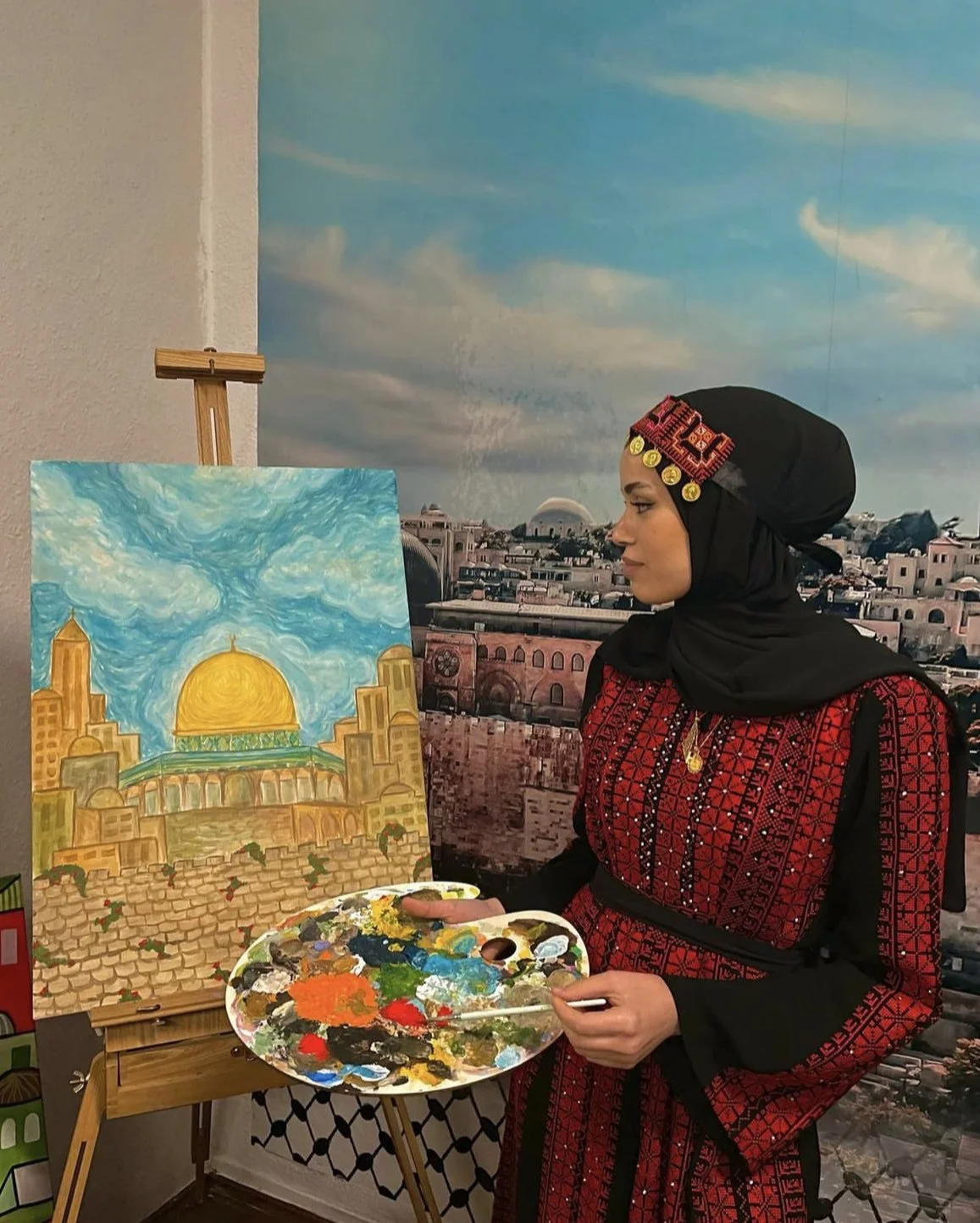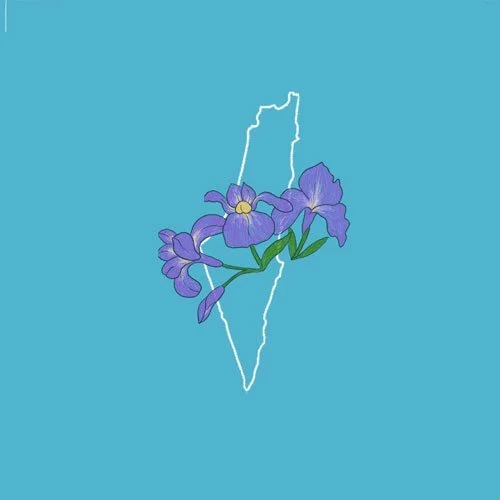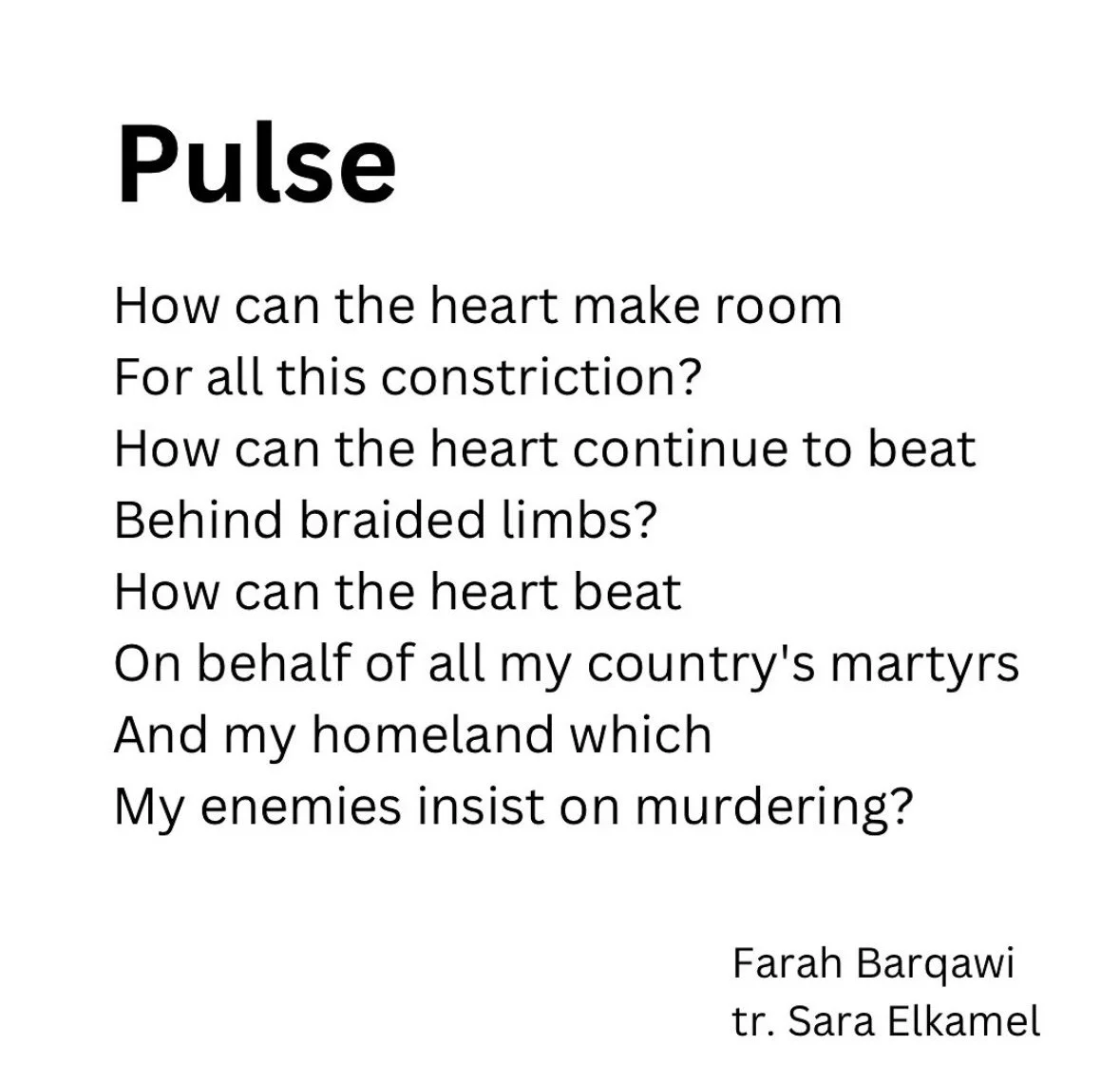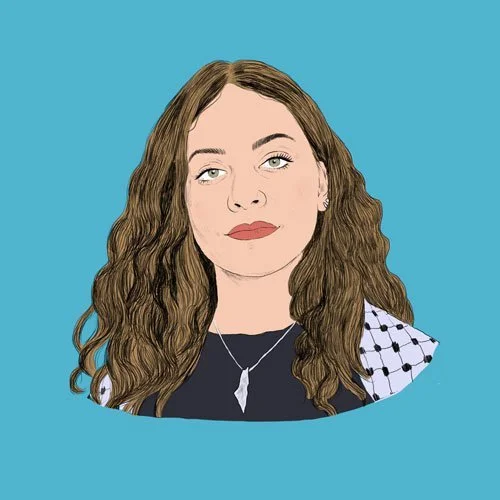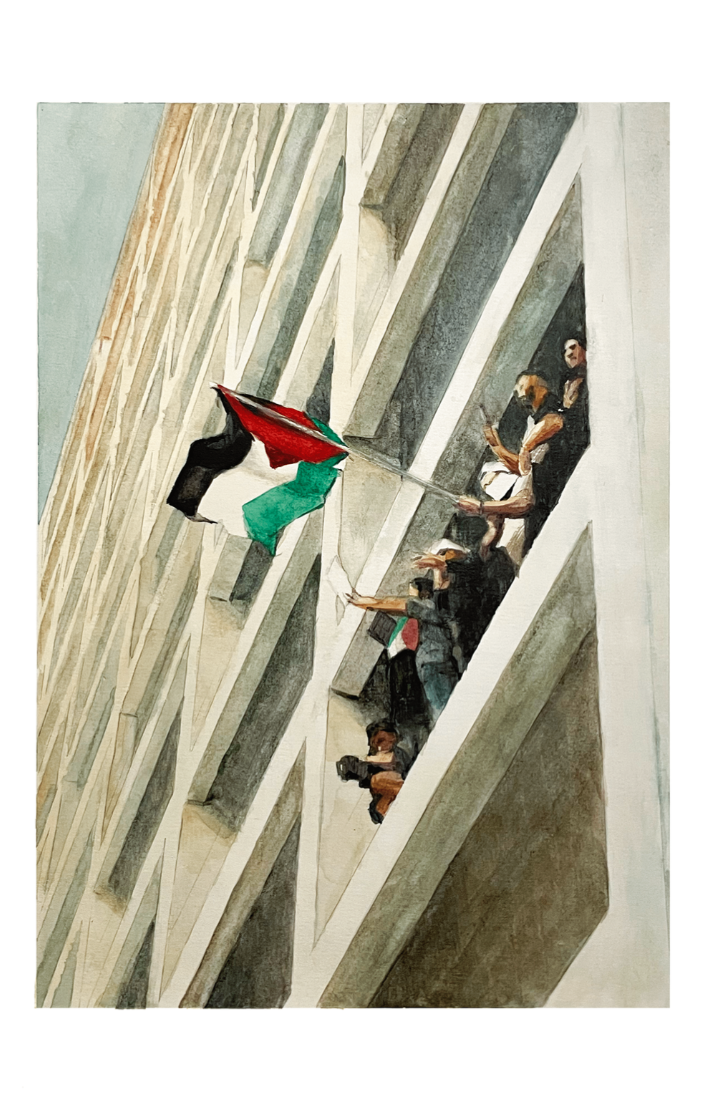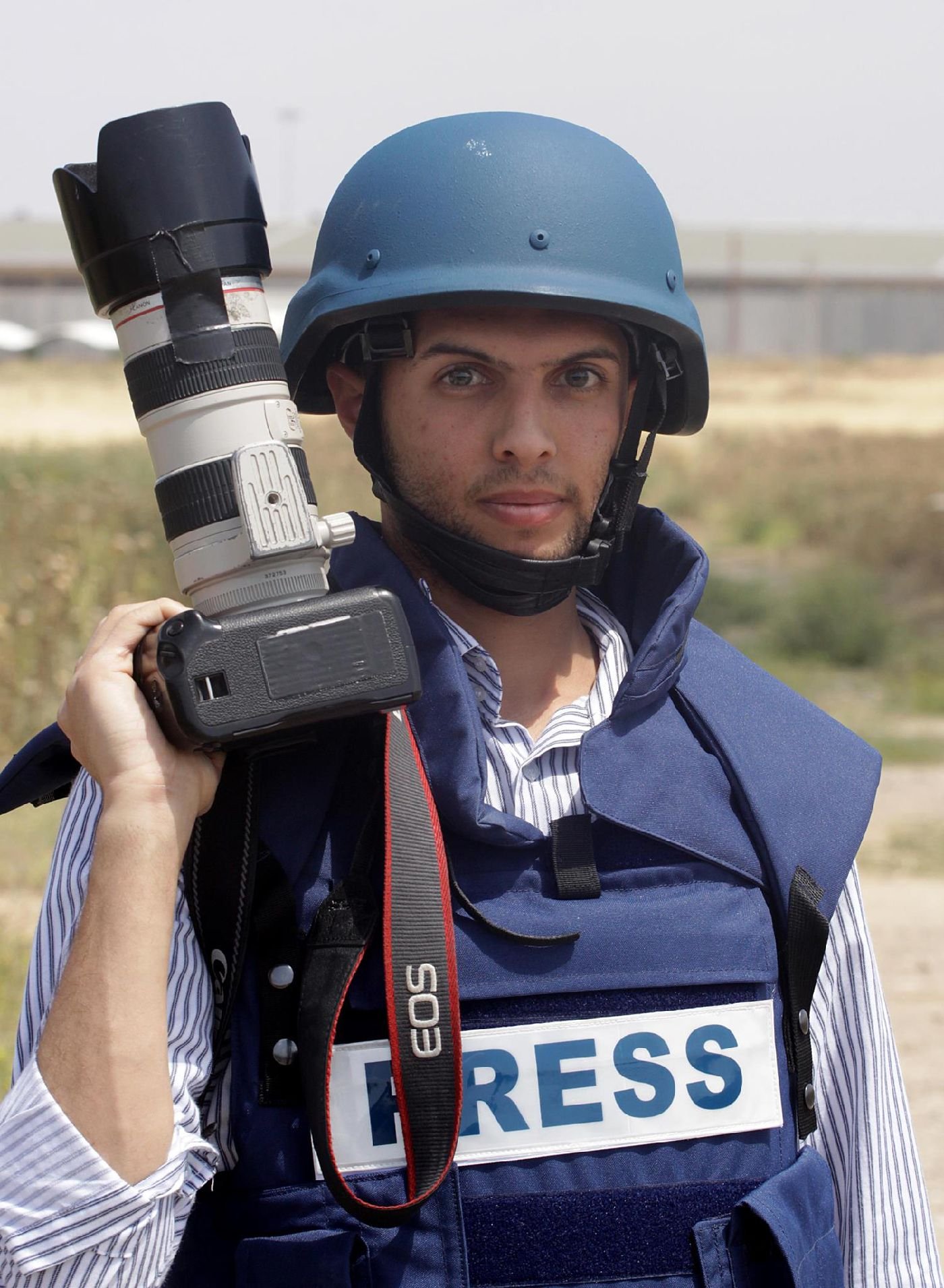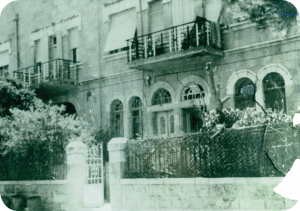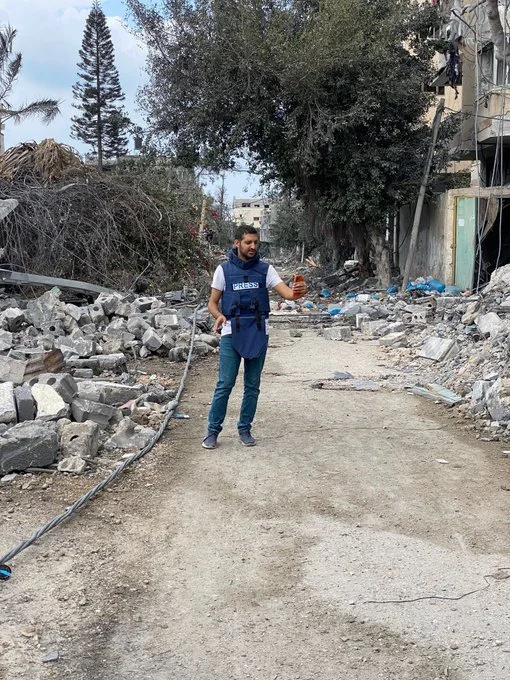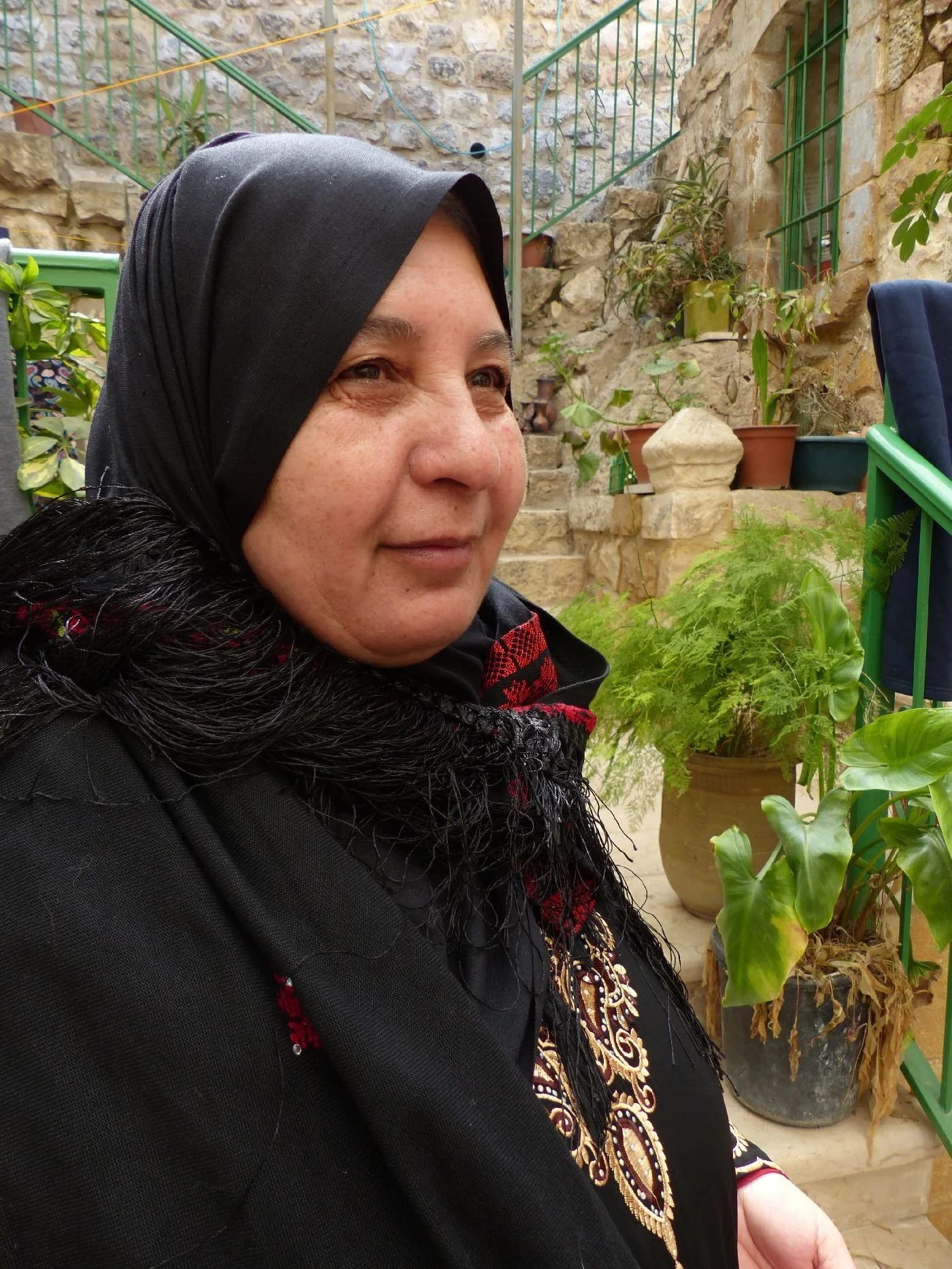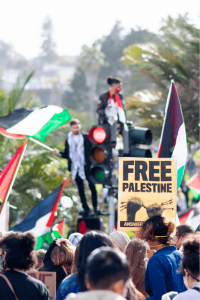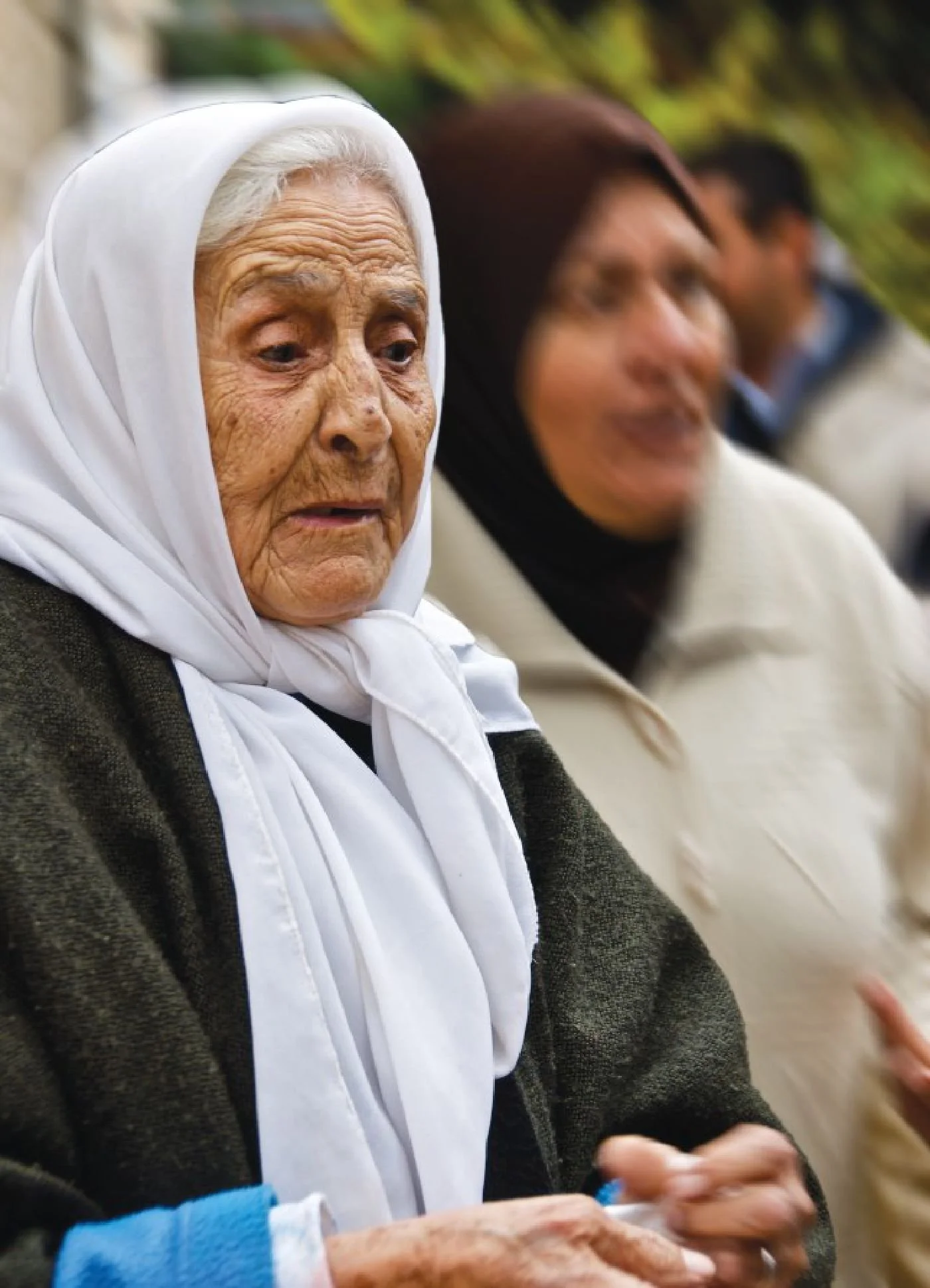collective memory
collective memory
Palestinian people are power, wisdom, joy, and unwavering resistance. Colonial powers not only aim to colonize but to eliminate and erase. This stands as a central goal of the colonizers' strategy. Documenting Past and present Palestinian stories, in their full depth of love, dreams, pain, heartbreak, injustice, and every facet of their existence, is a critical part of resistance. Through these stories, we can honor their lives and dreams, and take urgent action to support the liberation of Palestine.
نا عرفت انو الوضع كتير سيء لانو بابا دايماً قوي
ودايماً بستنا انو نرجع غزة لو كنا محظوظين وطلعنا لتعليم او غيرو.
بقولنا لمين بدنا نسيب البلد
بس وصلتني منو مسج عالفجر، فهمت انو مش كتير متأمل يكون في اشي بغزة ارجعلو بعد هي الحرب
ووصاني، عمستقبلي والكارير وغيرو.. وانو احاول الاقيهم برة غزة وما اضيع وقت اكتر من هيك
واحط مشاعري عجنب. لانو الوضع مختلف عن اي مرة تانية
شايف انو كتير مطولة الحرب حسب مفهمت منو
وانو خلص فقد الامل
ما رديت عليه. لاني منهم
والي عليهم علي حتى لو ما كنت موجودة هلا بالمكان
يا رب اقدر ارجع لقدام، ويكونو لسا موجودين ارجعلهم
“My friends and I have been sending each other our final messages.
We are writing down what we wanted to achieve. Our aspirations.
We are writing down how much we love our country. We pledge to defend it.
We are writing down these messages for people with no humanity or sense of morality.
We are keeping our dignity.”
— Ghayda’a Hasan Owaidah, Published on the Electronic Intifada - 2023
Queer Palestinian Stories, Published by @queeringthemap
Yet, in the heart of this conflict, amid the dehumanizing language, the people of Gaza hold on to their resilience and hope.
Currently, we are suffering from a severe shortage of food, and drinking water is in short supply.
Our available food supplies, and even our reserves, are running low. As for the Israeli government’s attempt to expel Palestinians to Egypt, I believe it is Israel’s intention to empty the Palestinian homeland.
Our struggle for freedom persists. Click here to read full story
— Mohammed Abu Shamala, Published on the Electronic Intifada - 2023
“On the day that my late husband Issa was born, June 19, 1932, his father Tewfic Habesch planted a mulberry tree in the garden of his Talbiyeh home as a symbol of gratitude. He nurtured both his son and the tree. Many gatherings were held with family and friends under the shade of the mulberry tree, especially in the early summer to enjoy its succulent fruit. That tree became a symbol to the family and a living hope of return as the tree continued to bear fruit in abundance. It was exactly what my mother-in-law wanted to see.
When my husband passed away in February of this year and prior to the funeral service, the family took him on his final journey to his home in Talbiyeh, not only to honor his legacy but also to pass on the torch to his children and grandchildren. In a simple ceremony full of symbolism, a big black ribbon was tied around the mulberry tree to bid him a final farewell.
On his birthday this year, on June 19, in celebration of his life, the family went to lay flowers next to the mulberry tree, only to find it chopped down. Sadly, the tree did not survive beyond its 89 years as though it were inextricably connected to my husband. I felt that another piece of me had been ripped out, again. I felt a strange pain in my heart. I could not cry. The tears did not come. But how could they when I was suffocating with emotion? Was I missing Issa or was I mourning the loss of a homeland? We wonder as to the reason or reasons for attacking symbols of our collective history and memory. Is a tree with a black ribbon a threat to the existence of the families who live in our homes, which were taken away from us, their rightful owners in 1948? I wonder!” Click here to read full story
— Claudette Ayoub Habesch, Published by This Week in Palestine
— Aya, Published by Stories of Girls’ Resistance and a Glimpse of Resistance - 2019
“This land was our only source of income. We worked hard on it, my husband, our sons, and I. We planted olive trees, almonds, figs. After 20 years of hard work, when it was time for our investment to pay off, the outpost was established and we began to suffer from recurrent losses.”
These were the words of Zakia, when we met her in 2013.
Her village, Al Mughayyir, has faced humanitarian impacts as a result of the establishment of a nearby settelement outpost in 1998.
Palestinian families whose agricultural land is in the vicinity of the outpost have been subject to violent attacks by Israeli settlers when accessing their plots.
Attacks have included physical assault and the damage to trees and property.
The Israeli army has also imposed restrictions on the access of Palestinians to some of the agricultural and grazing lands in the vicinity of the outpost.
— Zakia Abu Alya, Published by United Nations Office for the Coordination of Humanitarian Affairs - 2017
— Published by @queeringthemap
I'm 22 years old. I'm an architecture student in the Islamic University of Gaza, and I'm living here in Gaza City. We've been experiencing some terrifying moments. We don't know if we're [going to] live in the next moment or not. We are praying, every second, to be alive. This is not a new thing for us. This moment and what happened in the last few days, this is not a new thing, but it [is] super terrifying, and we [are] super terrified.
We evacuated from our home to our friend's, and now we're evacuating again. At 3:00 am on Oct. 14, we were informed that we have to evacuate again, [Israel' is [going to] bomb every house in the city and destroy the streets, the buildings, and our houses. We're not [going to have] a home anymore. We've been experiencing this for years, but this time it [is] miserable and terrifying. And, we hope that we will have our simple rights to at least have a home and be safe one day.
— Dunia Aburahma, Testimonies from Gaza Youth: Dunia Aburahma and Sara Besaiso - published on Palestine Studies
— Art by Hiba Zaqout, Gaza. Martyred by occupation forces in October 2023.
— Queer Palestinian Stories, Published by @queeringthemap
I was always strongly inspired by my mother and tried to follow her in everything. I grew up hearing great stories about this university and I decided to study there too.
In 2011, I finished my secondary school with very high marks and immediately applied to the Law Faculty at Bir Zeit. I applied for an exit permit through a human rights organization and was very disappointed to learn that my application was rejected by the Israeli security authorities.
I cannot see any legitimate reason why Israel would stop me from going to the university I want in my country. Israeli students can choose to study at any university they like in Israel. Although I’ve started to study law at Al Azhar University in Gaza and already completed the first year, I would be happy to start again at Bir Zeit.”
— Loujain Az Zaeem, Published by United Nations Office for the Coordination of Humanitarian Affairs - 2017
I want you to remember their names. I would not let them become mere numbers if they get killed.
I would not be fearing for their lives today, dear Europeans, if it were not for your support, silence and complicity in Israeli crimes and the economic and political backing Israel receives from the European governments that you elected.
A day will come when Palestine will be liberated. It will be a day of reckoning. You will be asked, while Israeli occupation and apartheid were crushing Palestinians, what were you doing? What will you have to say for your inaction then?
There is still time for you to spare yourself the shame of being on the wrong side of history. As bell hooks said, “Solidarity is a verb”. Are you acting now to stop the genocide in Gaza? - Click here to read the full letter
— Majed Abusalama, Published on Al Jazeera - 2023
I believe that through my art and other art from amazing Palestinian artists, people will understand more clearly how we as Palestinians feel and what we have to go through.
— Halima Aziz, Click here to view Halima’s art
بالحياة وعم ببعتولنا اخر الوصايا
بس الحمدلله عايشين لحد هلا
بتمنى كل اشي يوقف.
My family has almost lost hope in life and they are sending us the last will and testament
But, thank God, we are still alive
I wish everything would stop.
— Rima ريما
— Amani, Published by Stories of Girls’ Resistance and a Glimpse of Resistance - 2019
— اهتف بالصوت الهدار
The photographs remain.
— Published by megaphonenews
“At least if we’re going to die, we’re going to die with dignity in our homes.”
— Youmna ElSayed, Video published by Al Jazeera - 2023
“[Resistance] it’s something about who I am, how I evolved. It’s something that I believe in both concept and practice. Since the moment I became aware of life and death, people and relationships and everything, I experienced injustice. I can see the power imbalance in both the society where men are dominating in almost everything and telling women what to wear, what to do, etc. Then besides this patriarchal oppression I was able to suddenly experience colonial oppression. Ultimately experiencing both on a systematic level from a very early age, my understanding that resistance is part of what I am, it’s not something that I do to claim it’s important.”
— Published by Stories of Girls’ Resistance and a Glimpse of Resistance - 2019
“My dream is for us to stay alive and to live in peace. For them to stop bombing our houses and towers to scare us. And to let people leave their homes. We feel sad because people lost their houses and had nowhere to go. Then stayed on the streets not knowing where to go and live. This is our right. It is our right to stay alive. It’s our right to stay living in our homes. To be happy with our families. I hope to god we all stay alive.” Click here to watch
— Children of gaza, Dreams in Gaza Series documented in 2021
I describe myself as a resilient olive tree in this land with strength, dignity and courage. I consider myself stronger than anyone else and stronger than any man.
— Published by Stories of Girls’ Resistance and a Glimpse of Resistance - 2019
“My dream is for us to stay alive and to live in peace. For them to stop bombing our houses and towers to scare us. And to let people leave their homes. We feel sad because people lost their houses and had nowhere to go. Then stayed on the streets not knowing where to go and live. This is our right. It is our right to stay alive. It’s our right to stay living in our homes. To be happy with our families. I hope to god we all stay alive.” Click here to watch
— Children of Gaza, Dreams in Gaza Series documented in 2021
“I want to become a pilot and travel. And to free Jerusalem. Fly them to America. To travel the world. To enjoy life and be happy.”
— Children of Gaza, Published by Mohannad Abu Rizk - Dreams in Gaza Series documented in 2021
“Refugees are like seeds that scatter in the wind, and land in different soils that become their reluctant homes,” my mother once told me. As a small child, I looked up at my mother and clutched her hand. The puffiness of her palm reminded me of a loaf of warm pita bread, and when she laced her fingers into mine like a pretzel, I felt safe. I would have walked with her to the ends of the earth. (Excerpt from In My Mother’s Footsteps.)
— Mona Hajjar Halaby
I live in Gaza, Palestine. Let me tell you about [what] it is like from a Palestinian's point of view that's living in Gaza right now. These past [few] days, we've had no rest. We barely slept through the night, and the kids in our family don't know what to do. They don't know what to expect. They barely understand what's going on. We had to evacuate — leave from house to house — three times. My neighborhood was bombed with white phosphorus, and it is known to be illegal, but apparently nothing is too illegal for it to be used on us. On Oct. 13, [Israel] asked 1.1 million of us, people from Gaza, to go South. But the question is, where should [we] go? They're asking [us] to leave [our] houses, [our] homes, [our] neighborhood, the people that [we] love, and [our] friends to go evacuate to the South. We don't have anywhere to go. They told us to go South because it's [going to be] be safer, then they started bombing us [in the] South.
I don't know what you guys want, or expect me to do, but we have faced — [Israel has] been [committing] war crimes. They cut off electricity, water, and all life resources that a human being needs to live. They're breaking international law again and again. But who cares? It's just some kids in Palestine, right? No one cares about us! How are we supposed to get our voice out?
What we're asking for is peace. We want this to stop. What is our fault of being civilians? Was it my only fault that I have been born in this city, or in this country? Is that the only fault of those kids that have been killed? Most of the people that have been bombed and killed were civilians, babies, children, they don't understand what's going on. I can tell you, half of the people right here with me, half of those kids don't understand why this is happening to them.
They're asking why. Could you tell us why this is happening?
— Sara Besaiso, Testimonies from Gaza Youth: Dunia Aburahma and Sara Besaiso - published on Palestine Studies - 2023
“Recently the Israeli government was furious at Poland for instituting a law that would prevent Nazi-looted properties from being returned to their original owners. The hypocrisy and double standards are glaringly obvious. Israel considers that European Jews are by law entitled to regain their looted properties, while it simultaneously denies this right to millions of Palestinians. My family used to reside in the neighborhood of Qatamon in West Jerusalem. At that time, there was no East or West, but one Jerusalem. In 1948 my family was forced to leave Qatamon at gunpoint by the terrorist Haganah [Zionist] militia. We were among the last families to leave the neighborhood. In January 1948, the Haganah blew up the Semiramis Hotel in Qatamon. Scores of civilians were killed. The neighborhood was also subjected to shelling, and its residents began to move to safer parts of the city. Yet, Ibrahim Abu Dayyeh, who led the local resistance efforts, entreated residents to stay put, and some did. In the aftermath of the Deir Yassin Massacre, however, the Arab population of Palestine was gripped by terror. Later that month, the Haganah broadcast messages to the remaining residents of Qatamon, ordering them to leave or it would blow up their houses with families inside.” Click here to read full story
— Ramzi Michael Sansur, Published by This Week in Palestine
I received a startling message on WhatsApp from my dear brother, Adam. He was in Jordan, away from Palestine, when the war on Gaza erupted due to his work with the United Nations. He asked if our family was safe. I was baffled because our family had relocated from our house to the southern Gaza Strip in response to the threats from Israel's oppressive occupation. Many families, including ours, had been displaced from the north to the south.
I inquired about what had happened, assuming they were now safe after their displacement. Adam informed me that he had seen reports on the news about a house being bombed in Deir al-Balah area, the very place our family had moved to. I immediately tried to reach them, but my initial attempts were futile as the communication networks were severely disrupted. After numerous attempts, I finally managed to connect with my father, whose voice quivered with fear for the rest of the family.
During our conversation, I could hear a cacophony of sounds in the background: the cries of my young nephew, the relentless shelling, the shattering of glass, and the panicked voices of people in the streets. The overwhelming situation left me at a loss for words. All I could manage to say was, "Are you alive? Is everyone alive?" (Anto Aishin Jaobni Anto Aishi?!)n?!)
— Nadim
“I believe I’m a person who is fighting for her right as a woman, fighting for her right as a girl, as a Palestinian, and I’m trying to include all of that in my resistance, in my activism. Because I believe we need to literally be free of everything and try to make our lives better. I believe that my personality is, I believe a strong personality because I always like – oh my god, that’s my right and I’m going to take it. Whatever you’re doing, I’m going to take it.”
-Jana, Published by Stories of Girls’ Resistance and a Glimpse of Resistance - 2019
I live in Rafah, Gaza’s southernmost city. Israel has ordered a million people living in northern Gaza to move south.
People have gone through terror to arrive in Rafah.
After ordering people to move, Israel has bombed them on the way.
One man here lived through the Nakba, the 1948 ethnic cleansing of Palestine. After being expelled from his original home as a child, he grew up in Maghazi refugee camp.
It is located in central Gaza. Our visitor recalls when “tents started to go up all over” the camp.
Now – in October 2023 – he has been uprooted again. “I don’t think they will let me go back home,” he says.
Today, he cannot go to his original home in historic Palestine or to where he grew up in Gaza. Once again, he has been displaced inside his homeland.
This man is among 37 members of his extended family now taking shelter in a home measuring 120 square meters. Click here to read full story
— Sahar Qeshta, Published on the Electronic Intifada - 2023
I dream “To be a princess in a castle above the clouds. In a world made of sweets and chocolates and marshmallows.” Click here to watch video.
— Children of Gaza, Published by Mohannad Abu Rizk - Dreams in Gaza Series documented in 2021
— Published by @queeringthemap
مش متحملة قلوبنا كمية هالظلم و المجازر وماحدا محرك ساكن .دبحونا. كرامتنا انحطت لامية لاكهربا لاخبز لاوقود بموتونا الف ميتة باليوم غير الليل ورعبه
اقصى احلامنا نتحمم نشرب مية حلوة بدون اذلال الطوابير حتى الخبز طوابير
الصغار بطلو صغار صارو بعرفو الحزام الناري و الاباتشي والزنانة و القنابل المضيئة و اودانهم مش قادرة تتحمل
بنستنى نصير رقم من هالارقام ربنا يتولانا برحمته
Our hearts cannot bear the amount of injustice and massacres, and no one is a silent driver. They slaughtered us. Our dignity has been degraded for illiteracy, for electricity, for bread, for fuel. We die a thousand deaths a day other than the night and its terror.
Our wildest dreams are to take a bath and drink sweet water without the humiliation of queues, even bread is queues.
The children are young, they have become acquainted with the fire belt, the bombs, and flash bombs, and their hearts cannot bear it.
We are waiting for a supporter. May God protect us.
— Rana, Gaza - October 2023
This brutal war we are living, which the Israeli occupation is waging with all ferocity, has created a new reality for people, changing their lives. A lot of families have changed now: martyred, men, women and children, a new reality with imposed blockade, deprivation from electricity, water, transportation, losing homes, destitution and actual need.
- Hiba Abu Nada, Gaza - October 2023
I dream “For me and all the kids in Gaza to live in peace and for Jerusalem to be Free. This is my dream.” Click here to watch
— Children of Gaza, Dreams in Gaza Series documented in 2021
“What gave me strength to continue my resistance is my sisters in prison, who used to tell me that they trust me and they believe in my ability to change and to resist. I feel so sad that I left them in the prison and I wish they were with me now… My family’s support and space given to me was the main reason behind my resistance, and it gave me more confidence.”
— Ahed, Published by Stories of Girls’ Resistance and a Glimpse of Resistance - 2019
— Art by Malak Matar, Gaza
They say my neighbours are the folk
Who live next door to me.
"My neighbours" - such a friendly phrase,
I'm sure they couldn't be!
The folk who live next door?
We never get together
And talk about the things we love–
We talk about the weather!
A handclasp, smile, or friendly word
With them, would little be–
I find no kindred spirit
In the folk next door to me.
My friends are not my neighbours;
Or so the world would say–
Because the ones I really love
Are mostly far away.
Yet near my heart they always seem,
and far more neighbourly
Than any of the other folk
Who live next door to me !
And so I think, it matters not
If we are far apart;
My " neighbours and my friends are those
WHO LIVE NEXT TO MY HEART.Y HEART.
— “My Neighbours” is a poem written by Anton Musa Hazboun, a refugee banned from returning to his home: Bethlehem, Palestine.
— Unprovoked 02, by @Sketch_ht
The days and years passed. We also lived through the crisis of the Naksa during the 1967 War, when Israel occupied the rest of the land of historical Palestine, including East Jerusalem. Displacement continued, but our first migration had taught us never to leave our homeland again, under any circumstance. I visited our stolen house in Al-Baq’a as soon as the opportunity arose. Movement was restricted, yet two weeks after the war, I managed to go to Al-Baq’a with my husband and his brother in a car that was smeared with the traces of war. We headed to Al-Baq’a via Jaffa Street, bringing to full circle the suffering that our people have endured, and saw with our own eyes our house, inhabited by the occupiers who had stolen it and raised their flag at its entrance. What I felt in these moments cannot be described. The wounds that are engraved on our hearts can never be healed.
Since that agonizing trip 54 years ago, I have never stopped visiting our house and the neighborhood of our cherished childhood, just for the sake of re-experiencing its spirit and reliving the memories – and, most importantly, to pass on these treasured memories to my children and grandchildren so that they never forget or give up.“ Click here to read full story HEART.
— Abla Mohammad Taher Dajani Daoudi, Published by This Week in Palestine
❝I am 31 years old, from Ash Shuja'iyeh neighbourhood in Gaza city.
❝During the war last summer [2014], I was documenting the war through my camera lens. Despite being in constant danger, I felt it was my duty to show the world how my people were suffering.
❝My house was totally destroyed, and I am now an internally displaced person.
❝I work at a local news agency in the Gaza Strip and volunteer with number of news sites, but originally studied Medical Technology. I changed to photojournalism when I discovered I had a talent for it, and have won six awards to date despite the absence of photography courses in Gaza.
❝Recently, I won a World Humanitarian Summit photo contest arranged by the OCHA Regional Office for the Middle East and North Africa with a picture from the 2014 hostilities of an injured Palestinian child, Dalia Khalifa. The prize for the winning photo was a camera.
❝I first saw Dalia in the hospital. I was inspired by the picture of the Afghan girl which won the World Press Photo Award some years ago, and I was contemplating how I can best express the feeling of the war through the prism of this little girl’s face.
❝The girl was only nine years old. Like many other children in Gaza, she was injured while sleeping, when a shell hit her home.❞
— Mohammed Muhaeisen, Published by United Nations Office for the Coordination of Humanitarian Affairs - 2017
We met Amal in 2012, in Gaza, when she was 11-years-old.
Three years earlier, during Israel’s offensive in 2009, soldiers ordered over 100 members her extended family into one house. A day later, the residence was hit by Israeli artillery shells and live ammunition. Twenty-seven family members were killed, including 11 children and six women, and 35 others were injured.
Amal was left with permanent sharpnel injuries and trauma.
“I remember my brother and father and how they were killed in every moment… we were a happy family. Now I don’t feel happy anymore,” she told us.
“For one year we lived with the parents of my mother... Then we lived in a storage room for a year and a half. It didn’t have a floor. For the last six months, we have been living where our old house used to be... I want to have another doctor look at my situation, and to try everything possible to end my pain. I wish to travel not for amusement, but for medical treatment. When I have a lot of pain I become nervous and angry. When I am sad I go to my aunt’s house to see my cousins, or I prepare my books for school…
Before the war I excelled in school. Now my scores are not so good anymore.”
— Amal As Samouni, Published by United Nations Office for the Coordination of Humanitarian Affairs- 2017
I dream “to study in university and to pass high school.” Click here to watch video
— Children of Gaza, Dreams in Gaza Series documented in 2021
“Palestine was like a beautiful tapestry, with myriad brilliant colors all tightly woven together with communities living together in harmony.
Alas, we came back to a ravished tapestry, all torn, its threads scattered all over the country, indeed across many countries.
My plight, as I mentioned at the beginning of this article, is only from my point of view and what my family and I went through. However, this is nothing compared to the rest of Palestine, to all the villages that were destroyed, their lands taken, their men, women, and children shot at and driven out of their homes at gunpoint, never to return, becoming refugees living in camps up until this day.
Not to mention the indelible trauma that all the families of my parents’ generation suffered as they had to leave their homes, their work, and all their achievements behind, as well as their dreams for their children. It was like a huge tsunami that happened and obliterated everything that ever was, except that this tsunami was man-made by evil people with the collaboration of other countries, not least the British who, thought our country was theirs to give away and divide. But of course, the British did this everywhere they ruled.
We will never forget, and our stories will continue to be passed on from one generation to the next and someday justice will prevail.” Click here to read full story
— Laura Baramki Khoury, Published by This Week in Palestine
A graduate in fashion design with honors. Her dream was a small project for modest fashion, she loved her friends and photography. "She was a painter and an artist who loved life.” She was Martyred by occupation forces.
— Malik Abu Sharbeen, Gaza- October 2023
— Children of Gaza, Dreams in Gaza Series documented in 2021
— Amal, Published by Stories of Girls’ Resistance and a Glimpse of Resistance - 2019
— Children of Gaza, Dreams in Gaza Series documented in 2021
“Six years ago, I was again back at our house, this time with an Israeli filmmaker, Dorit Naaman, who was making a project about Palestinians’ houses in West Jerusalem. One of the building’s residents, a middle-aged Israeli woman, came out and talked to us. The woman claimed that the British awarded the house to her father in 1947, for his service in the British Army during the First World War. It was a blatant lie – we were living in the house then! Such are the lies they tell their children to hide the fact that they literally stole our houses. I wondered: Baq’a, Qatamon, Talbiyeh, and the rest of the Palestinian neighborhoods in West Jerusalem… How many lies have been told in those places? Those lies are part and parcel of Israel’s oppression that we have to resist. These days, I don’t drive any more, and it is my sons and my daughter who occasionally make the trip to Hamagid Street: they go there in order to show their children their great-grandfather’s house.” Click here to read full story
— Nahla Shawkat Assali, Published by This Week in Palestine
Before the war, I used to feel that Gaza was my second mother. Its ground was the warm chest I could lay on, and its sky was my dreams… without limits. The sea would wash away my worries. But today I feel it’s an exile, I stopped feeling it’s the city of my dreams.
— Published by The Gaza Mono-Logues. Picture by Al Limite Collective. Click here to read all of the monologues.
“We will not leave… and if we leave Gaza, it’s to heaven.. And heaven only” He was Martyred by occupation forces.
— Roshdi Sarraj, Gaza - October 2023
— Jamila Ash Shaladeh, Published by United Nations Office for the Coordination of Humanitarian Affairs - 2017
— Kamel Al Mougani, Gaza
Let us not forget the adults who were killed either. They included Samira, 56. She was my uncle’s sister-in-law. My uncle’s wife Jamila was also injured.
All of these people were civilians.
We must always remember that they were not just numbers.
They were human beings, who deserved life and happiness. The possibility of having their hopes realized. Click here to read the full story
— Tamer Ajrami, Published on the Electronic Intifada - 2023
“Among the most important consequences of the most recent slaughter in Gaza and the onslaught on Sheikh Jarrah is the creation of a new generation of Palestinian youth, giving new life to the Palestinian struggle. Shared Palestinian identity is re-emerging among Palestinians everywhere. The Israeli airstrikes and attacks on Palestinians in the occupied territories and in historical Palestine have paved the way for a more united and clearer idea of the struggle for all Palestine and all Palestinians. I am convinced that the younger generations of Palestinians in Israel, the West Bank, the Gaza Strip, and the diaspora are inextricably connected; they believe that one state from the river to the sea with equal rights for all its inhabitants is the only solution. It has become clear that artificially separating and dividing Palestine and the Palestinians will neither work nor succeed.” Click here to read full story
— Abdalhadi Alijla
— Queer Palestinian Stories, Published by @queeringthemap
❝They know she has heart problems and they always hit her close to her heart.
❝Once, if it had not been for a neighbouring doctor who rushed and helped her, she would have died.❞
— Rifqa Al Kurd, Published by United Nations Office for the Coordination of Humanitarian Affairs - 2017
On May 1, 1948, as the battle of Qatamon was raging, and with whatever clothes they thought they’d need for the summer bundled in sheets, the Kassotis left Qatamon in a friendly taxi. They were amongst the last to leave – possibly the very last. After a long drive through Jordan and Syria, they arrived in Beirut late in the evening. The only accommodation available was a single room in a hotel full of Palestinian refugees. The parents slept on the bed, the girls on the floor. The following morning, Manolis went shopping for suitcases. In the afternoon, they boarded the flight to Cyprus. My grandfather never recovered from the shock, developed diabetes, and was gravely ill for quite a while. My mother and Aunt Vasso became the breadwinners for the family. The Gaitanopoulos soon joined them in Cyprus, and the two families shared a house again for a while – mostly to help out the impoverished Kassotis. Like the rest of the residents of what became “West” Jerusalem, they were never allowed to return. Although they eventually landed on their feet in their new home country, they always held tight to what little they still had from Jerusalem: some photographs, the title deed to their house – and their memories. Click here to read full story
— Marina Parisinou, Published by This Week In Palestine
I dream “To become an engineer. To rebuild our country & make it the most beautiful”
— Children of Gaza, Dreams in Gaza Series documented in 2021
What a shame the fountain is empty of water, full of dry leaves,” he lamented as he pointed at the water fountain in the middle of the garden. The house looked somber and heartbroken, exactly like my father. The yellow jasmine flowers were falling over the fence. We touched the flowers, when suddenly a woman came out and shouted at us in Yiddish, “Who are you?”
“Hello, madame,” my father politely greeted her, “may we go in? I’d like to show my house to my family.”
“No, you are not welcome to come in,” she spitefully retorted. “Go away.”
“Why is this women so impolite, baba? Why doesn’t she allow us into our house?”
My father was let down. I think he struggled to maintain the strong father figure posture, but it wasn’t easy. His sorrow in this moment was channeled through my blood.
Looking back at that moment, I now realize that my father didn’t want to burden us with the grief that he had kept inside himself all those years caused by the catastrophic events in 1948 when he lost his home, his city, and his country. Click here to read full story
— Abdalhadi Alijla


